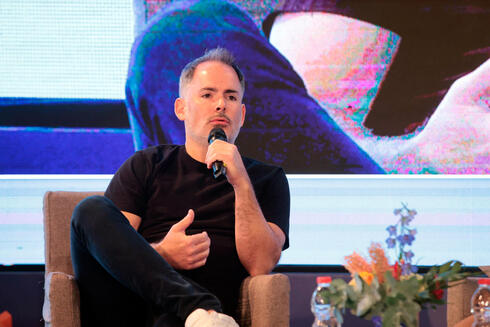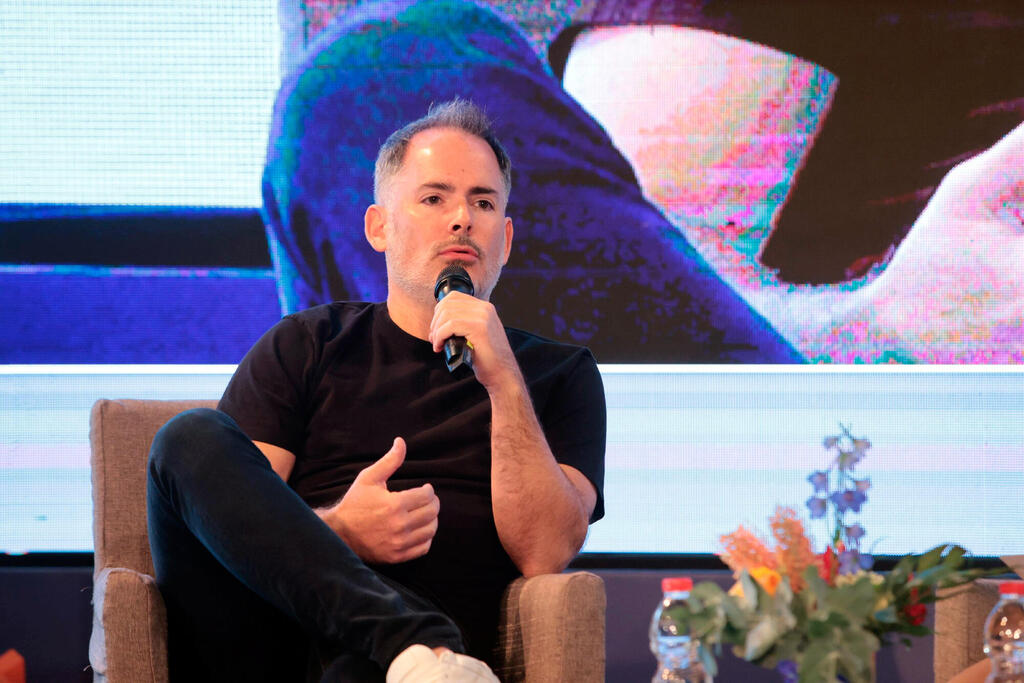
Tech TLV 2022
Fiverr CEO: "We had to downsize. It was the right step to take in a market where growth has become difficult"
"I think this crisis is more serious than its predecessors because money has been printed for 10 years," added Micha Kaufman, Founder and CEO of Fiverr
"Fiverr is very sensitive to macro changes. We were among the first companies to report a slowdown in growth, in March - before most companies felt it. As most of our customers are SMB’s they react very quickly to macro changes, similar to retail - Amazon is not living up to their predictions either. Within this challenging environment, the company's performance has been phenomenal,” said Micha Kaufman, Founder and CEO of global online marketplace Fiverr.
In a talk with CTech Editor-in-Chief Elihay Vidal during the Tech TLV conference, Kaufman insisted that the company had no option but to downsize. "We were among the first companies in Israel to downsize. The layoffs came after we tried to reach improved operational efficiency. However, in the end we had to downsize. It was the right step to take in a market where growth has become difficult. I sincerely hope that we will not have any additional cutbacks. Sadly, I can't guarantee it won't happen again."
Kaufman broke down the effects of the crisis on his company. "As a company, we work with many freelancers. This gives us a lot of flexibility in managing our fixed expenses. Most companies fire their freelancers and only then, their permanent staff. However, I think that by the end of this crisis, companies will recruit new freelancers before they rehire any permanent employees. So we will grow by the end of this cycle. In any case, I am not excited about the crisis. It has similar characteristics to previous crises, but the intensity varies according to the circumstances. I think this crisis is more serious than its predecessors because money has been printed for 10 years. A third of the United States' GDP is going towards paying back their deficit. These are structural issues that will take more than a month or two to overcome.
"These cycles are healthy," believes Kaufman. "They will also dispose of companies that shouldn't be here. At the height of the last decade, there were companies with stupid ideas that received unlimited funding. Valuations were scandalous. Companies with real value will survive and their market will be cleared of unnecessary noise. At the end of every cycle, after 2001 and 2008 there were waves of small and big businesses. Look at us, we went live in 2010, along with Uber, Lyft, and Airbnb. There are things you can control and things you can't. I am trying to be very calculated about the things in my control. You can't fight the macro but you can react to it. If Amazon can't beat the macro, no one can beat the macro."
What did you learn in the transition between a private company and a public one? How is Micha post IPO different from pre-IPO Micha?
"I had the privilege of knowing what I was getting into. We consulted with companies that issued before us. We began to conduct ourselves like a public company a year and a half prior to the IPO. If you don’t meet your goals as a private company, no big deal. We sat over a beer with our investors and calculated a new course of action. But it's not like that as a public company.
"What set us apart from companies issuing in 2021 is that we didn't issue the company before the business became predictable. When you become a public company, you want to build trust; guarantee something and deliver. That's what we built for a year and a half before we went public. It helped us create a very consistent story."
During Covid you skyrocketed, then you came back down to earth.
"The pandemic gave us a boost, but not for nothing. The company made a series of strategic decisions pre-Covid that helped us grow significantly. We took the company public three-and-a-half years ago, before it was profitable. Now it is three times bigger and turning a profit. We were sitting on 100% growth in the quarter during Covid, so it's not that the company has slowed down, it's just starting to normalize. Everything we gained during Covid, we didn't lose. I understand that reading financial reports isn’t for everyone. I don't care about the share price, I can’t control it at the moment. I am not interested in all the investors who want to buy and sell in a month. Investors who want to make an investment for the coming years are the ones I want to create value for."
Due to social processes, the freelancer market is changing before our eyes. What do you know that we don't? What are you looking forward to?
"When I launched Fiverr back in 2009, freelancers were 20% of the labor market. In 2030 they will be 50% of the labor market, to one extent or another. This means that companies will have to integrate this talent into their work processes. Fiverr is building the operating system that will enable this. Organizations have realized that handling variable expenses is smart. Managing freelancers is critical to this. I have no idea what our market value will be in 2030 but our potential is tens and even hundreds of billions of dollars. It's a matter of time. If you have time, maybe you'll see it happen. For those who don't have patience, this will stay cynical."














